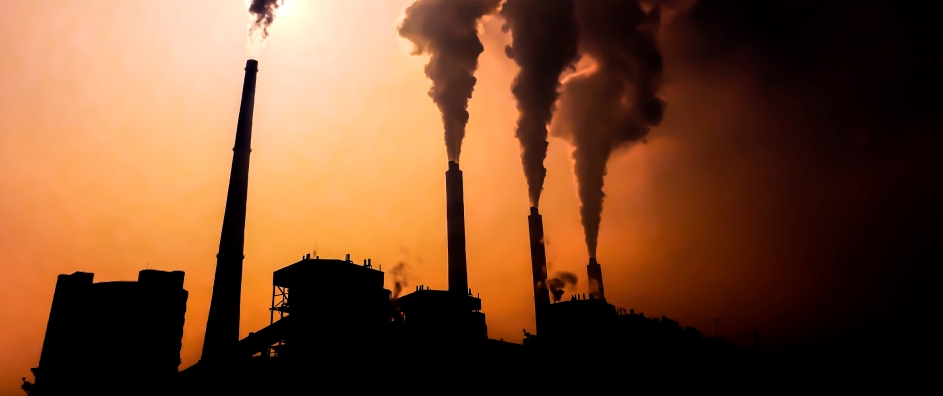The call to restrict carbon emissions from power plants by Baha’is is a significant reflection of their commitment to environmental stewardship and justice. But have you ever pondered the broader implications of such an initiative? What challenges does the proposition embody for policymakers, industry leaders, and society as a whole in their journey toward sustainable energy solutions?
In addressing this pressing issue, it is vital to explore the intersection of Baha’i teachings and environmental consciousness. Central to Baha’i philosophy is the understanding that humanity is part of a larger ecological system and that our actions have profound repercussions on the planet. This perspective not only fosters respect for nature but also engenders a sense of responsibility for its preservation and enhancement.
The Baha’i Faith holds that the Earth is but one country, and humankind its citizens. This implies that environmental concerns transcend national borders. Consequently, calls for regulating power plant emissions are not mere local or national matters; they are, in fact, global imperatives designed to mitigate climate change, a crisis that imperils life on Earth as we know it.
Power plants are among the largest sources of carbon emissions in the United States. They contribute significantly to air pollution, exacerbating health issues and environmental degradation. By advocating for stringent regulations on these facilities, Baha’is align themselves with a moral imperative to protect the well-being of all living creatures. Such advocacy derives from teachings that emphasize the importance of ethical conduct and social justice, urging individuals and governments to prioritize collective wellbeing over individual profit.
However, the path to enacting meaningful regulatory changes is fraught with challenges. Regulatory agencies must navigate the complex interplay between economic interests and environmental protection. Industries often argue that stricter emissions standards could lead to increased operational costs, job losses, or a detrimental impact on local economies. Indeed, the fear of economic ramifications can stymie progress toward environmentally responsible policies.
As Baha’is urge the U.S. government to take action, the struggle lies in fostering dialogue among stakeholders that balances economic viability with environmental sustainability. The challenge is to create an atmosphere of collaboration where industry leaders, policymakers, and environmentalists can converge on solutions that embrace clean energy without compromising economic stability. Baha’i teachings underscore the belief that faith must be the animating force behind our pursuit of justice—including social and environmental justice.
Consider the potential of transitioning to renewable energy sources, such as solar, wind, and hydropower. These alternatives not only mitigate carbon emissions but also offer economic opportunities through job creation in new energy sectors. The Baha’i principle of consultation can serve as a foundational method for generating innovative ideas and reaching consensus among diverse perspectives. By fostering an inclusive dialogue, the path toward sustainable energy solutions becomes more accessible, serving both environmental and societal needs.
Another dimension of the Baha’i approach to the climate crisis is the emphasis on education. Engaging communities through awareness and understanding of the implications of carbon emissions and climate change is crucial for fostering a culture of sustainability. Education empowers individuals with the knowledge to advocate for informed changes within their communities and to hold elected officials accountable. A robust public discourse regarding the environmental consequences of power plants and the viable solutions available could catalyze a paradigm shift, prompting both individual and organizational change.
Furthermore, it is essential to consider the spiritual dimension of the Baha’i teachings related to the environment. The Baha’i Faith encourages adherents to reflect on the intrinsic interconnectedness of all life and the spiritual obligations therein. This perspective imbues the environmental discussion with a deeper sense of purpose—promoting not merely compliance with regulations, but a profound commitment to stewardship of the Earth as a sacred trust.
In urging the U.S. to restrict power plant carbon emissions, Baha’is are not merely addressing an ecological issue; they are engaging with a moral and ethical conundrum that challenges us to rethink our relationship with the environment and with each other. The notion of collective responsibility in caring for the Earth reiterates the teachings of unity and interdependence found within Baha’i texts.
Ultimately, the quest for a healthier planet requires a collective act of will and collaboration among diverse sectors of society. Baha’is advocate for meaningful change, calling for policies that reflect the urgent necessity of environmental protection. They invite all stakeholders to reflect on their spiritual and ethical duties in promoting the common good, encouraging a harmonious coexistence with nature.
In conclusion, the Baha’is’ appeal to the U.S. to restrict power plant carbon emissions not only presents a significant environmental challenge but invites a profound examination of humanity’s relationship with the Earth. It questions whether we are prepared to embrace a future that prioritizes sustainability, equity, and the shared stewardship of our planet. The answers to these queries will significantly shape the trajectory of our collective future, forging a legacy of environmental consciousness for generations to come.
